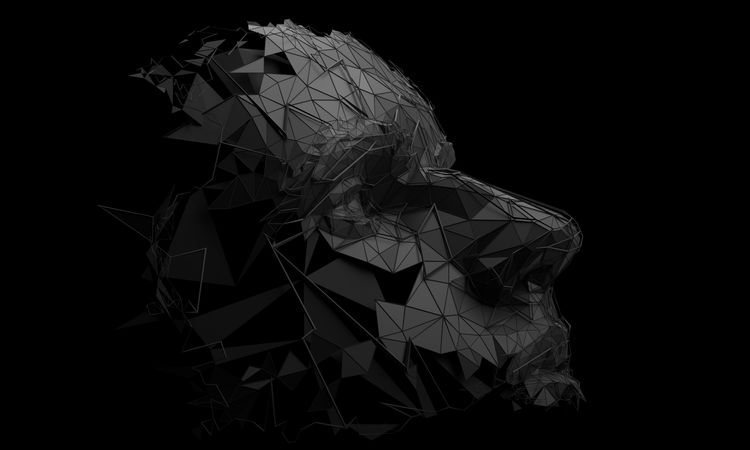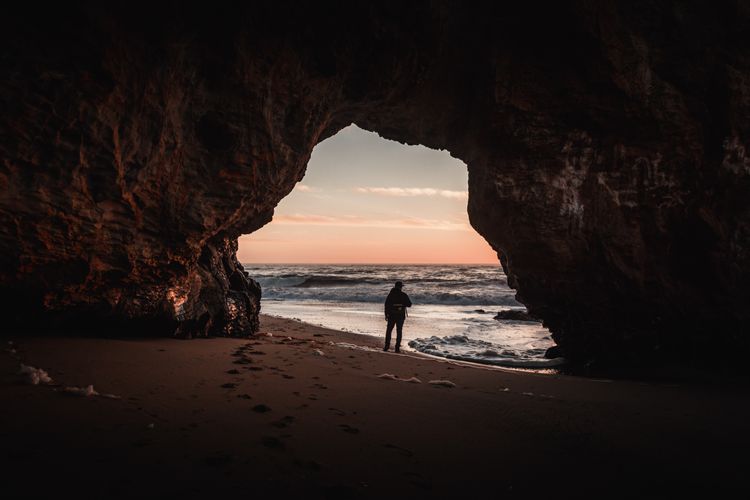Echo Chambers Will Be the Death of Us If We Don’t Address the Real Problem

Remember nine months ago when people stormed the United States Capitol building hoping to discover a secret chamber where Nancy Pelosi was keeping children held captive? That was the result of an echo chamber.
Remember when Reverend Jim Jones successfully convinced nine hundred people to drink cyanide-laced punch? That was also the result of an echo chamber.
Echo chambers now exist in abundance. Thanks to the internet, it’s easy to find a community of like-minded people and dig in your heels.
Your views, no matter how bizarre, can be heard, understood, and affirmed by others. Where is this all leading us?
The Architecture of Echo Chambers
An echo chamber is “an environment where a person only encounters information or opinions that reflect and reinforce their own.”
Echo chambers distort people’s perspectives and cripple their ability to see nuance. Confirmation bias, or the tendency to seek information that reinforces your beliefs, keeps echo chambers running.
Echo chambers are further reinforced through “filter bubbles.” Filter bubbles occur when an algorithm tailors your advertisements and recommendations based on your search history.
This means that a single search or click can flavor your entire information diet.
The defining feature of an echo chamber is who its members come to trust. Trust in the information that comes from outside the echo chamber is discouraged.
The chamber is where the answers are found. The chamber is where its members can feel safe, reassured, and accepted.
Echo chambers aren’t far off from cults.
What We Thought The Answer Was
Echo chambers are a source of political tension, conflict, and extremism, so naturally, researchers have investigated how to temper their effects and wake up their members.
The most obvious solution to the problem would be to present an echo chamber with information from the outside. Shake up their perspectives so that they have a more balanced understanding of how things work. Facts should make them less extreme, right?
Unfortunately, this doesn’t happen. It has been proven that being presented with opposing arguments does not bring anyone closer to sanity. Echo chambers condition their members against opposing viewpoints.
Example: Flat Earth theorists can easily deny scientific evidence because they believe the source of that evidence (NASA) is photoshopping its satellite images to convince everyone the Earth is a sphere.
So what will convince people if not facts?
The Heart of the Problem
What echo chambers undermine is trust in the validity of other perspectives. Anyone trying to convince you that what your chamber says is false is a person trying to harm you.
Your chamber is a group of freedom-fighting angels while the outside is nothing but demons.
Philosophy professor C Thi Nguyen cites a story about a man named Derek Black who was radicalized into Neo Nazism. The source of Black’s echo chamber was his own father, who groomed him to be a Nazi from the day he was born.
Being an open Nazi, Black was shunned by most people until he went to college. It was then that Matthew Stevenson, a fellow Jewish undergrad, invited Black to attend a Shabbat dinner.
Stevenson was nothing but kind and generous to him. This random act of kindness was Black’s catalyst for change.
After feeling trust for someone who was supposed to be his enemy, Black spent the next several years immersing himself in different cultures, reading Arabic literature, and listening to rap.
Today, Black is an anti-Nazi spokesperson. He managed to free himself from his echo chamber.
So What’s It Going to Take?
It would seem that acts of tremendous empathy, like Matthew Stevenson’s, are the key to freeing people from echo chambers. Or rather, giving them a reason to trust someone from the outside allows an echo-chamber member to free themselves.
Trust is what it’s going to take. Nguyen cites the example of homophobia:
Similarly, accounts of people leaving echo-chambered homophobia rarely involve them encountering some institutionally reported fact. Rather, they tend to revolve around personal encounters — a child, a family member, a close friend coming out. These encounters matter because a personal connection comes with a substantial store of trust.
Nguyen then makes a conclusion:
It depends on the intervention of another. This path is not even one an echo-chamber member can trigger on her own; it is only a whisper-thin hope for rescue from the outside.
Are we meant to intervene? Is basic kindness the answer to echo chambered extremism? If a Neo Nazi can come back from the brink, then can a QAnon follower? A radical leftist? An anarchist? A social justice warrior?
Rejection, pain, and social isolation are what drive people to extremism in the first place. Unmet needs lead people to find meaning in terrifying places. But how could you be kind to an extremist? How could you give a person like that a chance?
Christian Piccolini, another former Neo Nazi, said this about his emancipation:
What it came down to was receiving compassion from the people that I least deserved it [from], when I least deserved it.
Echo Chambers and The Future of How We Relate to Eachother
Showing empathy to someone when they least deserve it is tough for anyone to do. I don’t know if I could have done what Matthew Stevenson did.
The only solution I can think of is to try and see people on a fundamental level. Before you see their political beliefs or their biases or their paranoia or their ugliness, see them in a third dimension.
Are they basically good? Do they seem lost or scared? Are they really beyond saving?
Don’t make anyone your enemy until you know them, whether they’re wearing a MAGA hat, a hammer and sickle patch, or a police badge. They can only trust you if you are willing to listen. I know no one wants to hear that, but that’s where empathy and understanding begin, with listening.
Refusing to listen reinforces otherness. Untrustworthy otherness is what keeps people trapped in echo chambers.
And I don’t know what Matthew Stevenson’s exact thoughts were when he decided to invite a Nazi to dinner, but I imagine that at that moment, he didn’t see a Nazi. He saw a kid with no friends.



